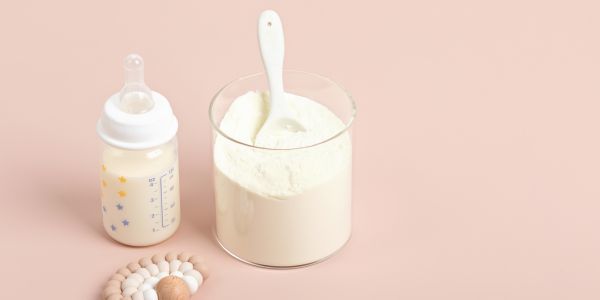

A study has discovered that there is little evidence to support some of the health claims formula companies make about their products.
As a result, scientists from Imperial College London are advising that marketing rules should be tightened to prevent spurious health claims being made about formula. Now, we consider ourselves a hugely supportive and inclusive community for parents of all backgrounds, but we're definitely concerned to learn this - we'll outline the study and the findings, and look at what the study concluded, as it may be relevant to many of you.
What formula health claims did the study look at?
The health claims that the study has dissected are extensive; some have been found to claim that their formula milk can increase brain, eye and nervous system development, as well as improve the immune system of babies. 757 formula products were analysed, from 15 countries so a wide range of manufacturers. The study has been published in the British Medical Journal (BMJ).
Products from Australia, Canada, Germany, India, Italy, Japan, Nigeria, Norway, Pakistan, Russia, Saudi Arabia, South Africa, Spain, the UK, and the US were analysed by Dr Ka Yan Cheung and Loukia Petrou. They deliberately chose a range of high, middle and low income countries, studied between 2020 and 2022, in order to gather data that accurately reflects a global community. Their conclusion was;
"The wide range of health and nutrition claims made by infant formula products are often not backed by scientific references. When they are, the evidence is often weak and biased."
The study also found that on average each formula product analysed by the scientists advertised one health or nutrition claim - however, only 56% of these claims were actually backed by clinical trials! The 44% of the health claims were actually user reviews, opinions, or studies done on animals rather than actual clinical trials involving human babies and mums.

On top of this shocking discovery, the BMJ study went on to share that nearly 90% of the clinical trials mentioned as evidence for health claims were actually funded in part by the formula industry, or 'directly affiliated with it', meaning that there is a conflict of interest and a potential bias due to the financial interest that the industry has in the product that they're doing the study for. An independent study, undertaken by parties with no affiliation or funding from the formula industry, would be more transparent and many argue more trustworthy due to there being no financial interest.
There have long been concerns within the health sector and amongst infant feeding specialists that potentially inaccurate health and nutrition claims made about formula milk by brands could undermine the scientifically proven benefits of breastfeeding, and according to UNICEF, the UK has some of the lowest breastfeeding rates on the planet - this study adds fuel to those worries. The researchers concluded:
"These findings support calls for a revised regulatory framework for breast milk substitutes to better protect consumers, and avoid the harms associated with aggressive marketing of such products."
Our verdict...
We support all parents with their feeding choices; bottle, boob, cup, tube, we have parents from so many different circumstances in our online community. However, we do agree that aggressive and misleading marketing of formula products is a massive problem and should absolutely be tackled. An informed decision is the right of every single parent, and if they're being given potentially outright false information about a product or misled about where the information comes from, then their decision isn't fully informed, which is unfair and potentially harmful.


.png)







